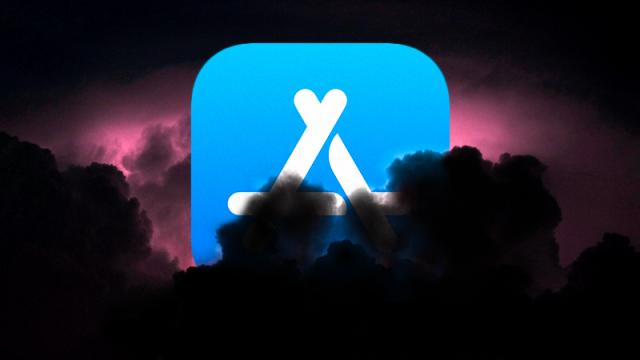The long-standing controversy over the so-called “Apple tax” the company imposes on apps in its App store has resurfaced in a new standoff with recently launched email management app Hey, a dispute that brings into sharp focus the unchecked dictatorial power Apple wields over apps and their creators ” and one that’s long overdue for a sweeping overhaul. Apple’s only hurting its own users with its app tax and subscription terms, and with WWDC next week it’s time for it to fix itself.
The short version of what happened this week is this: Hey, a $US100 ($145)-a-year email-filtering app from the folks at project management and communications company Basecamp, launched this week across platforms including Apple’s App Store. The basic functionality of the app is to filter out some of the noise with a vetting process that allows users to approve incoming emails and opt out of receiving future emails from the sender if they so choose. It also has some other neat tools baked in, like blocking email trackers that can see how frequently you open an email or allowing for subject headline changes without borking a thread. In short, the app does have a lot of potential to serve the specific needs of consumers, including Apple’s.
But the problems started when Hey attempted to release an update for the service with new features and bug fixes ” a request that Apple barred. David Heinemeier Hansson, founder and CTO of Basecamp and co-founder of the new Hey product, dropped an explosive thread on Twitter condemning Apple’s rejection and what Hanssonn viewed as a strong-arm tactic by Apple that would require users to subscribe to the service through the app itself, which would make it subject to that infamous “Apple tax” that allows the company to take up to 30% of the sales. Right now, you subscribe to Hey via the web, avoiding fees to Apple or any other app store. Basically, Hansson said, Apple pulled some “give us your money or we’ll give you the boot” bullshit.
“Like any good mafioso, they paid us a visit by phone,” Hansson tweeted of the conversation with Apple. “Stating that, firstly, that smashing our windows (by denying us the ability to fix bugs) was not a mistake. Then, without even as much of a curtesy [sic] euphemism, said they’d burn down our store (remove our app!), lest we paid up.”
Not an especially great look from Apple here, but it’s also far from the first time something like this has happened. The “Apple tax” has been a point of contention for years. Apple seems to have no problem taking stupid-high cuts from apps and implementing significant restrictions on them while propping up its own competing apps and services.
But it’s not just the concern for Apple magically exempt. It’s left frustrated developers asking why Mr. Moneybags over here gets to make away with a veritable third of their revenues while also barring needed updates for apps that do not comply.
Most developers keep quiet about Apple’s tax for fear of biting the hand that feeds them. But Hansson seems emboldened by the EU investigation announced just days before his Twitter screed. The European Commission is now probing Apple’s App Store terms over potential antitrust violations. European Commission Executive VP Margrethe Vestager said in a statement this week that it appears as though the company “obtained a “˜gatekeeper’ role when it comes to the distribution of apps and content to users of Apple’s popular devices. We need to ensure that Apple’s rules do not distort competition in markets where Apple is competing with other app developers, for example with its music streaming service Apple Music or with Apple Books.”
We reached out for comment about the Hey controversy, but Apple declined to comment specifically on the Hey drama. Instead, it cited App Store Review Guideline 3.1.1. That guideline, which applies to so-called “reader apps,” states the app can grant a user to access previously purchased content “provided that you agree not to directly or indirectly target iOS users to use a purchasing method other than in-app purchase, and your general communications about other purchasing methods are not designed to discourage use of in-app purchase.” In other words, Apple bars any workarounds for its tax.
Hey, meanwhile, does not appear ready to bend to Apple’s bidding ” which, again, may come at the expense of either needed updates or the ability to find the app in the App Store altogether, ultimately hurting Apple’s own users.
“I mean, we’re not interested in changing our entire billing setup. If we change it, Apple takes 30 per cent of our business,” Hansson told Wired. “Those rates are completely outrageous.”
And Apple, buddy, is this ever a bad way to position your company before it heads into a developer-focused multiday event. Will Apple speak to this issue next week? Apple being Apple, it may very well not ” but it should. Doing your developers dirty by baiting them into a system that allows Apple to enforce its murky policies willy nilly is not only a bad deal for developers, it hurts consumers. If Apple really wants to do its communities a solid, it would, at the very least, give its devs a clearer, fairer idea of how and to whom its arcane App Store policies apply. And maybe give that whole “corporate greed” thing a good think.
If you’re a developer who’s had issues with Apple’s policy enforcement, we want to hear from you. You can reach the author at ckeck@gizmodo.com or tip us anonymously through SecureDrop.
